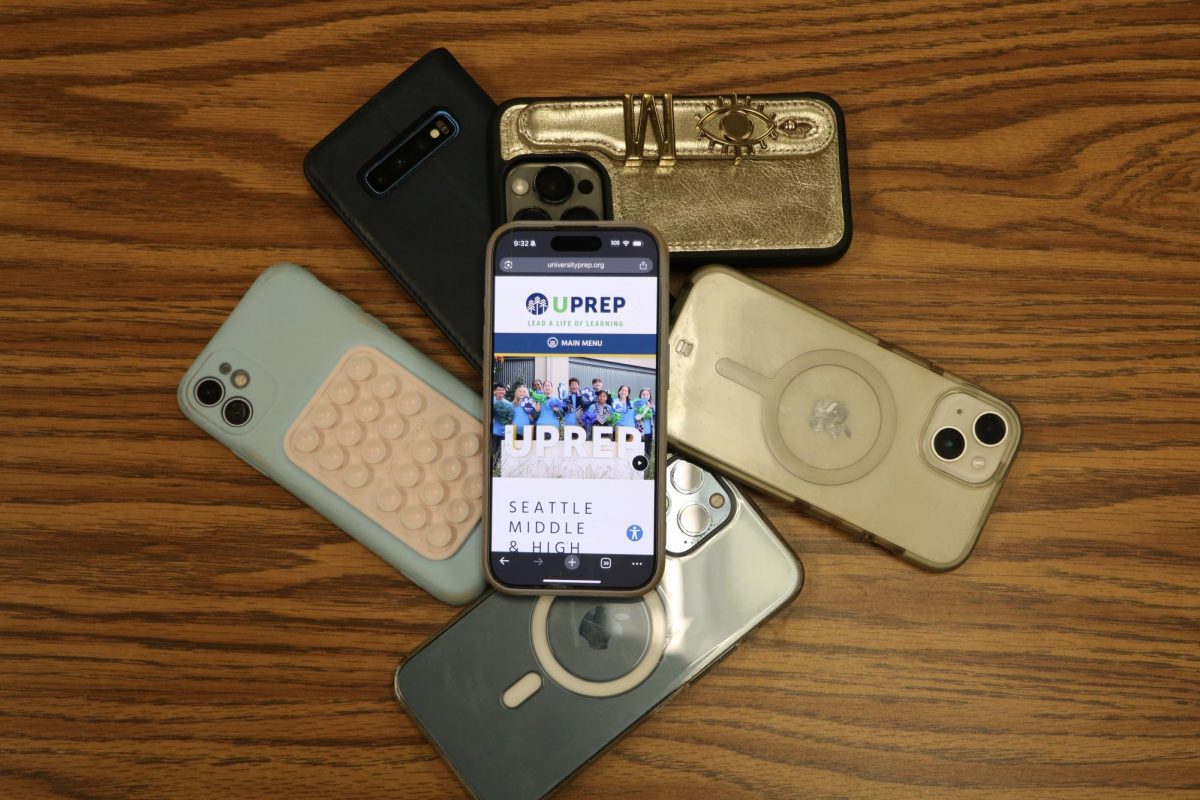UPrep’s middle school students are not allowed to have their phones out from the time they get to campus until 2:55 p.m.
“If you have your phone out before you walk into the doors[in the morning], you just have to put it in your backpack, and then it includes lunch recess, the whole school day. As soon as it’s 2:55, your phone can come out again,” Head of School Ronnie Codrington-Cazeau said.
UPrep’s social media policy, that is posted on Veracross, encourages good judgment, and this rule also applies off school grounds.
“Good values are when you are on your phone at home, how are you using it to hold up other students or to bring them down?” Codrington-Cazeau said.
The front office phone is open for use by all students.
“People use it if they’re wondering about pickup time, or if there was some confusion when they left the house about a doctor’s appointment, or if they’re not feeling well. But there’s never a line for that phone,” Codrington-Cazeau said.
UPrep counselors presented a Social Justice Week session on social media and phone usage.
“Phones are something that we’re also learning across development and the process of getting, managing, having a responsibility and social learning through your phone often comes with mistakes, and so it’s its own thing to be learned in terms of how to manage and engage,” Andrea Moore, a middle school counselor, said.

In 2025, 95% of teenagers had a smartphone, compared to 73% in 2014–15 according to Washington office of super independent public instruction.
“Reducing the use of cell phones in class improves concentration and learning, improves mental and physical health, and reduces pressures caused by social media,” State Superintendent Chris Reykdal said in a guidance document.
Eighth grader Elie Swanson spends less than an hour a day on her phone. Swanson doesn’t have social media, but feels she would be less productive if she had it.
“I feel like I’d get less work done, and I feel like I’d spend a lot of time on my phone,” Swanson said.

